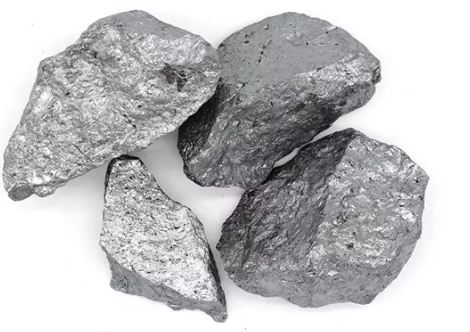Silicon metal is a versatile material with a wide range of applications across various industries. This metalloid element, known for its semiconducting properties, is derived from quartz and is highly valued for its unique physical and chemical characteristics. Below, we explore some of the most prominent uses of silicon metal in today's world.

1. Electronics and Semiconductors
One of the primary uses of silicon metal is in the electronics industry. Silicon is the foundational element in semiconductor devices, which are essential components of most modern electronic equipment. Integrated circuits, microchips, and transistors all rely on silicon for their functionality. This makes silicon indispensable in the production of computers, smartphones, tablets, and a myriad of other digital devices.
2. Solar Energy
Silicon metal plays a crucial role in the renewable energy sector, particularly in the production of photovoltaic (PV) cells used in solar panels. High-purity silicon is used to create solar cells that convert sunlight into electricity. As the demand for sustainable energy solutions grows, so does the significance of silicon in advancing solar technology.
3. Aluminum Alloys
In the metallurgy industry, silicon metal is added to aluminum to create aluminum-silicon alloys. These alloys are used extensively in the automotive and aerospace industries due to their enhanced mechanical properties, including improved strength, corrosion resistance, and castability. These attributes make aluminum-silicon alloys ideal for manufacturing engine parts, wheels, and structural components.
4. Chemical Industry
Silicon metal is a vital raw material in the chemical industry for producing silicones and silanes. Silicones, which are polymers containing silicon, are used in a wide array of products, including sealants, adhesives, lubricants, medical implants, and cookware. Silanes are used as coupling agents and adhesives, contributing to the durability and performance of various materials.
5. Steel Manufacturing
In the steel industry, silicon metal is used as a deoxidizing agent and to increase the strength and quality of steel. It helps remove oxygen from the molten steel, which improves its overall purity and performance. Silicon is also added to cast iron to enhance its hardness and resistance to wear and corrosion.
6. Silicon Carbide Production
Silicon metal is a key ingredient in the production of silicon carbide (SiC), a compound known for its exceptional hardness and thermal conductivity. Silicon carbide is used in a variety of applications, including abrasives, cutting tools, refractory materials, and in the production of high-performance ceramics.
7. Optical Glass and Ceramics
The optical industry benefits from silicon metal in the manufacture of high-quality glass and ceramics. Silicon's properties enable the production of optical glass with superior clarity and durability, used in lenses, mirrors, and other optical devices. Silicon ceramics are valued for their heat resistance and strength, making them suitable for use in demanding environments.
Silicon metal is a critical material that impacts numerous industries, from electronics and renewable energy to metallurgy and beyond. Its unique properties enable advancements in technology and materials science, making it an essential component of modern industrial applications. As technology continues to evolve, the importance of silicon metal is likely to grow, driving further innovation and development across various fields.
